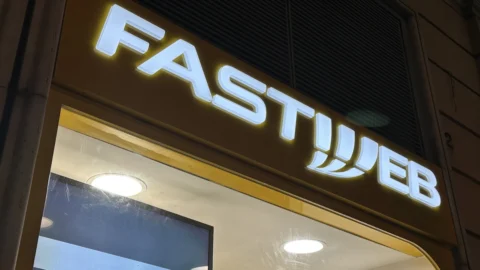Use payment cards in complete safety, avoid falling into online fraud, do not take risks after withdrawing money from an ATM or branch. Here comes the handbook of the ABI to ensure greater security, especially for the elderly and those with less financial education. From now on, in fact, the online guide developed in electronic format by the Banking Association will be available to all Italian Prefectures with useful advice to avoid scams and deceptions. It is a matter of a few simple precautions and best practices, provided in simple and direct language to strengthen security by reducing vulnerability factors and economically risky behaviors.
The ABI guide is aimed above all at the population groups most exposed to the risk of fraud and goes alongside the training and information tools and initiatives developed by the specific coordination committees, set up in recent months at the Prefectures of all the country under the protocol signed in May 2016 with the Ministry of the Interior. The aim of the agreement is to strengthen collaboration between banks and law enforcement agencies to protect the elderly and those with poor financial education, thanks to an even more effective action to combat and prevent criminal phenomena such as scams, frauds and thefts.
Here is, in summary, the vademecum with the ABI's "three useful tips". WHEN YOU GO TO THE BANK:
1. Don't be "habitual", for example always going to the branch on the same day and time or always taking the same route.
2. Do not let strangers approach you on your way to or from the bank. Never comply with requests to show money or bank documents.
3. If possible, have a family member accompany you to the bank when you need to deposit or withdraw a large sum of money.
Here are 3 helpful tips… WHEN USING THE BANK'S WEBSITE
1. Keep carefully and often change the codes that allow you to use the bank's online services, such as those for accessing your current account. Never keep your personal codes together with the device that generates the "disposable" password to access online services.
2. Access the site from the address in the navigation bar and always check that the site name matches that of the bank. Never enter the current account page through references found in the emails received.
3. Always update the security programs on the devices you use and install only official programs and updates whose origin is verified. Report any anomaly to the bank, for example the opening of unwanted windows and pages.
3 useful tips… WHEN YOU WITHDRAW OR PAY WITH YOUR CARD
1. Never lend the card you use to withdraw or make payments to other people.
2. Keep very carefully – and never together with the card – your PIN code, used to make payments or withdrawals. If possible, memorize the code and avoid sharing it with others.
3. Be careful not to be observed when entering the code to make withdrawals, deposits and card payments. Cover the keyboard while entering the code.
3 useful tips… WHEN YOU INVEST YOUR SAVINGS
1. Always check that the person in front of you is a person authorized to carry out the activity.
2. Never hand cash to the person making the investment. Checks or wire transfers must only be made to the bank, finance company, etc. Never advance money in order to purchase investment products.
3. Always distrust those who offer easy and safe earnings or "turnkey" solutions. With high returns come high risks.
3 useful tips… WHEN IT COMES TO CHECKS AND CURRENT ACCOUNTS
1. Never accept checks from strangers or untrusted people, nor those without certain information as the bank may refuse payment.
2. Never entrust your checkbook to others for safekeeping, avoid mailing checks, never send photocopies of checks and do not allow others, unless authorized, to make a copy.
3. Always carefully check the account statement, the document that summarizes the income and expenses of the current account, and report any alleged errors to the bank.
WHAT TO DO IF… I HAVE BEEN CONFEATED
Contact law enforcement immediately and then the bank. Always have your reference telephone numbers at hand.
WHAT TO DO IF… I HAVE LOST OR HAD MY CARD STOLEN
Immediately call the toll-free number of the "Block card" service that was communicated to you when you received the card and contact the bank as soon as possible. Subsequently, report the loss, theft and/or improper use of the card to the Police and deliver a copy of the report to the bank.





